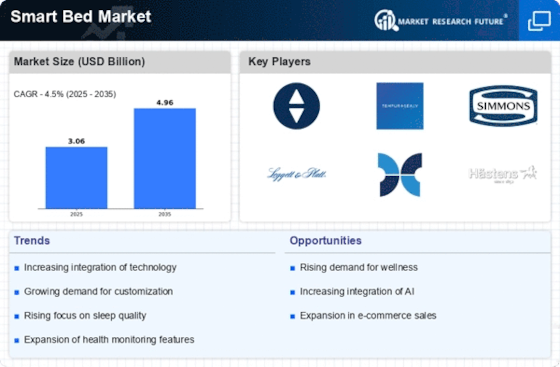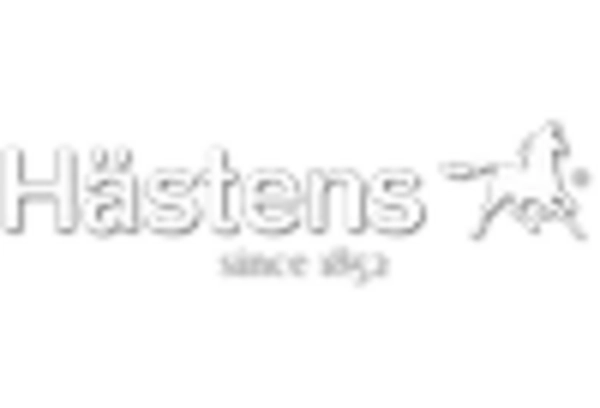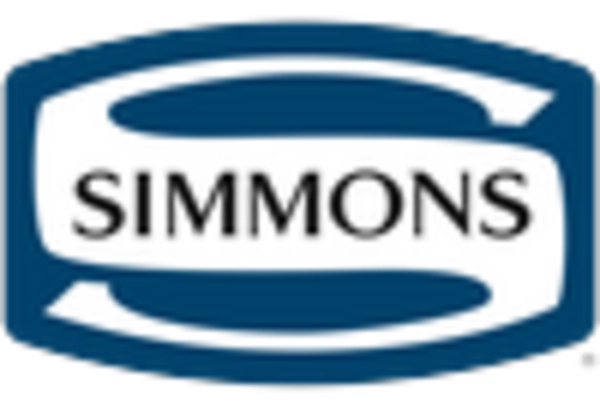Market Share
Smart Bed Market Share Analysis
In the rapidly evolving landscape of the Smart Bed Market, companies employ various strategies to position themselves favorably and capture a significant share of this growing industry. One prominent strategy is product innovation, where companies focus on integrating cutting-edge technologies into their beds. Smart features such as sleep tracking, adjustable firmness, temperature control, and connectivity with other smart home devices set these beds apart from traditional ones. By continually enhancing and diversifying their product offerings, companies aim to attract tech-savvy consumers and stay ahead in the competitive market.
Pricing strategy plays a crucial role in market share positioning within the Smart Bed Market. Some companies adopt a value-based pricing approach, offering advanced features at competitive prices to appeal to a broader consumer base. On the other hand, premium pricing strategies target consumers willing to invest more in their sleep quality, positioning smart beds as a high-end, luxury product. Striking the right balance between offering value and catering to different market segments is key for companies seeking to establish a strong position in this market.
Brand positioning is essential in building trust and credibility, especially when dealing with innovative and technology-driven products. Companies invest in creating a strong brand image by emphasizing the reliability, quality, and performance of their smart beds. Effective marketing strategies that communicate the benefits of smart sleep technology, user-friendly interfaces, and positive customer experiences contribute to a brand's reputation and influence market share growth.
Distribution channels and accessibility are critical factors in the Smart Bed Market. Companies strategically leverage online and offline channels to ensure their products are readily available to consumers. Collaborations with reputable retailers, partnerships with online platforms, and showroom experiences can enhance visibility and make smart beds easily accessible to potential buyers, positively impacting market share.
Customization and personalization are becoming increasingly important in the Smart Bed Market. Companies that allow users to tailor their sleep experience through adjustable settings, personalized recommendations, and adaptive technology attract consumers looking for a customized solution. The ability to cater to individual preferences and sleep needs contributes to a positive customer experience and influences market share.
Incorporating sustainable and eco-friendly features is another aspect of market share positioning in the Smart Bed Market. With a growing emphasis on environmental consciousness, companies that prioritize sustainable materials, energy-efficient technologies, and eco-friendly manufacturing processes can attract environmentally conscious consumers. Positioning smart beds as not only technologically advanced but also environmentally responsible can contribute to market share growth.
Strategic partnerships and collaborations with technology companies also play a role in market share positioning. Companies that integrate their smart bed technology with popular smart home ecosystems, voice assistants, and other connected devices create a seamless user experience. Such integrations can broaden the appeal of smart beds and attract consumers already invested in smart home ecosystems, positively impacting market share.
Customer reviews and testimonials hold significant weight in the Smart Bed Market. Positive feedback regarding the performance, durability, and overall satisfaction with smart beds can influence potential buyers. Companies that actively encourage and showcase positive customer experiences can build trust and credibility, contributing to market share growth.


















Leave a Comment